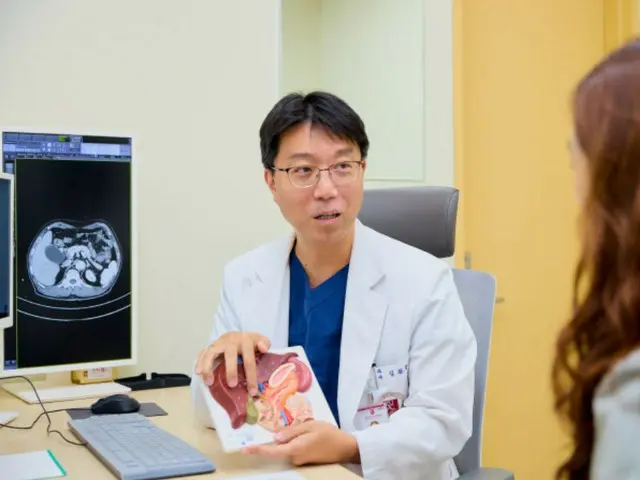It helps digest water-soluble vitamins. Cancer that develops in the gallbladder is called gallbladder cancer, and although its incidence is low, the five-year survival rate is only about 5-10%, so caution is required.
◇ Gallbladder stones increase the risk of developing gallbladder cancer by up to 10 times. The cause of gallbladder cancer is still unknown, but it is thought to be caused by chronic inflammation.
Gallstones are known to be the most important risk factor for gallbladder cancer. It has been analyzed that gallstones larger than 3cm and gallstones that formed a long time ago increase the risk of developing gallbladder cancer.
Statistics have shown that people with gallstones have a 5 to 10 times higher risk of developing gallbladder cancer than those without, and countries with a high prevalence of gallstones also have a high incidence of gallbladder cancer.
Polyps are also considered a cause of gallbladder cancer, but if the size of a gallbladder polyp is 1 cm or larger, or if the polyp gradually grows larger,
In addition, if polyps are accompanied by abdominal pain or gallstones, or if the polyps are discovered at age 50 or older, gallbladder cancer is suspected. Gallbladder cancer is especially likely to increase rapidly around the age of 70.
It is known that gallbladder cancer can develop in the early stages, and more detailed observation is required. ◇ Lack of early symptoms and delayed diagnosis Gallbladder cancer usually has no symptoms in the early stages, and is often discovered late.
The main symptoms are indigestion, pain in the upper abdomen and under the right ribs, and if gallstones are present, recurrent, severe pain or pain radiating to the right. In advanced stages, weakness and weight loss may occur.
As a result, 30 to 60% of gallbladder cancer cases may cause jaundice. It is not easy for patients to notice, and early gallbladder cancer may be discovered by chance during an abdominal ultrasound examination during a health check.
Professor Kim Wan-jun of the Hepato-Biliary-Pancreatic Surgery Department at Korea University Kuro Hospital said, "When people have indigestion, they first suspect gastritis and begin treatment, but if they have had gastritis for a long time,
"If symptoms do not improve even after treatment, it is important to suspect gallbladder disease," he said.
Gallbladder cancer can be detected through ultrasound and computed tomography (CT), but the gallbladder is small, measuring 7-10cm, and located deep inside the abdomen.
Because the lesion is in a small area, it is not possible to determine whether or not cancer is present through tissue testing before surgery, so a diagnosis is made based on a combination of imaging tests and various other findings.
The basic treatment for gallbladder cancer is surgery, but since it is mostly discovered at an advanced stage, it takes 20 to 30 minutes to cure.
Only about 30% of patients can have their cancer completely removed. The surgical method varies depending on the stage of the cancer, but it is performed using laparoscopy or robotic surgery, and patients who have had a history of abdominal surgery in the past
In cases where the inflammation is so severe that a safe operation is deemed necessary, open surgery may be used. In the case of gallbladder removal, robotic surgery has been shown to be beneficial in reducing pain and wound healing for patients.
Robotic cholecystectomy is gradually becoming more common as more research results are published. It is used to prevent the growth of cancer cells that may remain after surgery or when cancer has metastasized and surgery is difficult.
In some cases, chemotherapy is administered to treat advanced gallbladder cancer. However, the development of new anticancer drugs has been delayed, and there are currently no anticancer drugs that are effective against advanced gallbladder cancer, so it is difficult to expect significant results.
Radiation therapy can also be used, but if the cancer is difficult to completely remove by surgery, or if it cannot be removed but has not metastasized, radiation therapy is used to prevent local recurrence.
Professor Kim said, "Gallbladder cancer has a high recurrence rate and a low survival rate, so early detection is crucial. In the case of early-stage gallbladder cancer, the long-term survival rate five years after surgery is 90.
Given that the reported infection rate is up to 100%, it is strongly recommended that people with symptoms such as gallbladder polyps or ulcerative colitis receive proactive treatment and undergo regular abdominal ultrasound examinations.
2024/07/28 14:31 KST
Copyrights(C) Edaily wowkorea.jp 91

